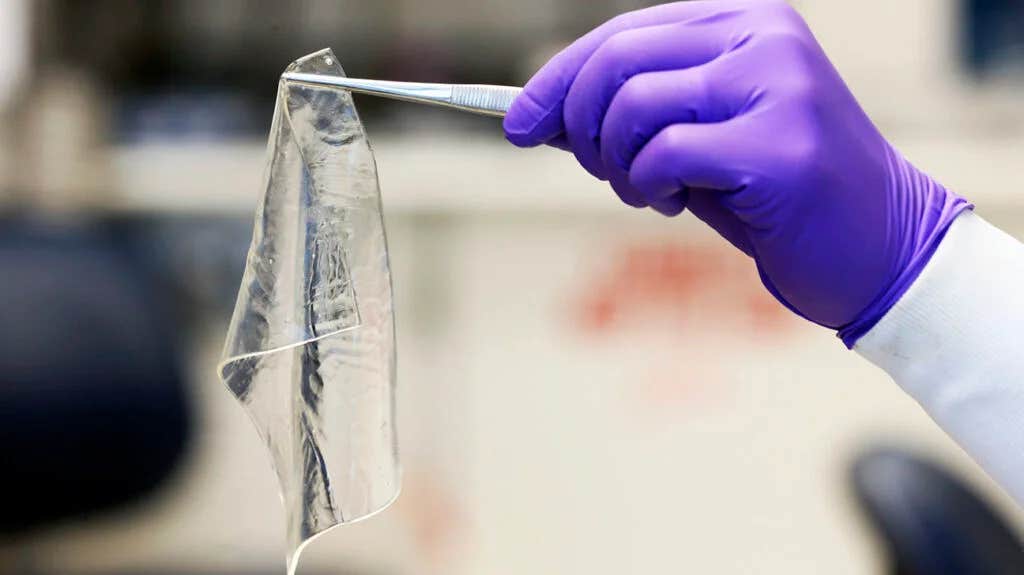Revolutionary Discovery: Local Anesthetic Drug Effective in Killing Cancer Cells
Lidocaine is a commonly used local anesthetic that works by blocking signals at the nerve endings in the skin.

[Nov. 27, 2023: JD Shavit, The Brighter Side of News]
Lidocaine is a commonly used local anesthetic that works by blocking signals at the nerve endings in the skin. (CREDIT: Creative Commons)
In the world of medicine, sometimes the most unexpected discoveries lead to groundbreaking advances. Such is the case with lidocaine, a widely-used local anesthetic that has long been a staple in medical practice. Recent research has unearthed a surprising revelation - lidocaine may possess anticancer properties. This revelation has the potential to reshape cancer treatment as we know it.
Lidocaine functions as a local anesthetic by blocking signals at nerve endings in the skin, making it a go-to choice for pain relief during medical procedures. However, its newfound role in cancer treatment has left many baffled.
Scientists have been probing the enigma of how this commonly used numbing agent could be associated with anticancer effects. The answer to this mystery has finally begun to emerge.
At the heart of this discovery lies the activation of a taste receptor known as T2R14 by lidocaine. This receptor, responsible for detecting bitterness, was found to be present in high concentrations within various cancer cells, especially those residing in the oral cavity and throat. The tantalizing possibility that lidocaine interacts with cancer cells through this receptor led researchers at the University of Pennsylvania to explore this hypothesis.
Related Stories
Lead investigator of the study, Robert Lee, an assistant professor of Otorhinolaryngology Head and Neck Surgery at the University of Pennsylvania, expressed his astonishment at their findings, stating, "We were surprised to find that lidocaine targets the one receptor that happened to be most highly expressed across cancers."
The groundwork for this discovery had been laid in previous research conducted by the team, which revealed that the activation of T2R14 receptors in cancer cells initiates a controlled cell death process. In their latest study, published in the esteemed journal Cell Reports, the scientists made a pivotal breakthrough. They found that exposing cancer cells to lidocaine could also activate this process, setting off a cascade of cellular signals that ultimately led to the death of cancer cells.
While the study doesn't make the audacious claim that lidocaine could serve as a cancer cure, it does provide a glimmer of hope for patients battling head and neck cancers. Ryan Carey, an assistant professor and co-lead author of the study, conveyed this optimism, saying, "While we're not suggesting that lidocaine could cure cancer, we're galvanized by the possibility that it could get an edge on head and neck cancer treatment and move the dial forward, in terms of improving treatment options for patients with this challenging form of cancer."
Calcium responses to different concentrations of lidocaine in head and neck cancer cells. (CREDIT: Cell Reports)
One of the most exciting aspects of lidocaine as a potential treatment is its ease of administration. The drug can be readily injected in proximity to or around accessible oral tumors, a feature that piques the interest of head and neck surgeons like Carey. He explained, "Speaking as a head and neck surgeon, we use lidocaine all the time. We know lidocaine is safe, we're comfortable using it, and it's readily available, which means it could be incorporated into other aspects of head and neck cancer care fairly seamlessly."
Head and neck cancers, particularly squamous cell carcinomas, have long been associated with high mortality rates. Even with the best available treatments, only 50 percent of patients manage to survive past the five-year mark. Thus, the promising results of this research offer a ray of hope to those afflicted by this devastating disease.
However, the potential of lidocaine as an anticancer agent might extend far beyond head and neck cancers. Researchers are optimistic that lidocaine could prove beneficial for patients battling various other forms of cancer. In a separate study published in the Journal of Clinical Oncology, it was found that breast cancer survival rates increased when patients received lidocaine before surgery.
What makes this discovery even more exhilarating is the possibility that lidocaine might not be the sole drug capable of triggering cancer cell death via the T2R14 receptor. As Robert Lee remarked, "What's incredibly exciting is that a lot of existing drugs activate [T2R14], so there could be additional opportunities to think about repurposing other drugs that could safely target this receptor."
Pictured left to right: Ryan Carey, MD, Robert Lee, PhD, and Zoey Miller. (CREDIT: UPenn)
The path forward from this groundbreaking discovery is illuminated by the hope of clinical trials. The research team aspires to initiate clinical trials that investigate the integration of lidocaine into standard care therapy for head and neck cancer patients. This marks a pivotal step towards potentially revolutionizing cancer treatment.
The discovery of lidocaine's anticancer properties serves as a testament to the unceasing commitment of scientists to unlock the mysteries of medicine and offer new hope to those facing the daunting battle against cancer.
Note: Materials provided above by The Brighter Side of News. Content may be edited for style and length.
Like these kind of feel good stories? Get the Brighter Side of News' newsletter.
Joshua Shavit
Science & Technology Writer | AI and Robotics Reporter
Joshua Shavit is a Los Angeles-based science and technology writer with a passion for exploring the breakthroughs shaping the future. As a contributor to The Brighter Side of News, he focuses on positive and transformative advancements in AI, technology, physics, engineering, robotics and space science. Joshua is currently working towards a Bachelor of Science in Business Administration at the University of California, Berkeley. He combines his academic background with a talent for storytelling, making complex scientific discoveries engaging and accessible. His work highlights the innovators behind the ideas, bringing readers closer to the people driving progress.



